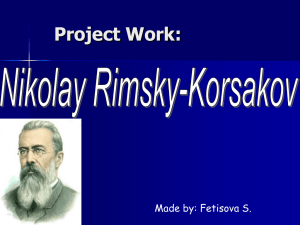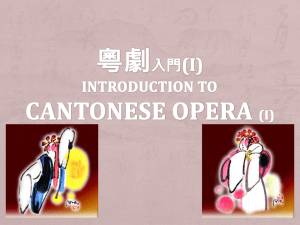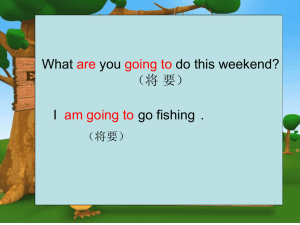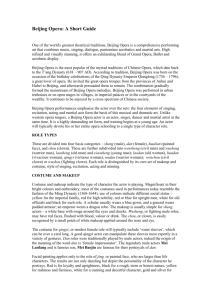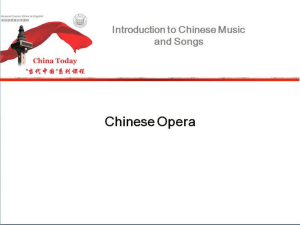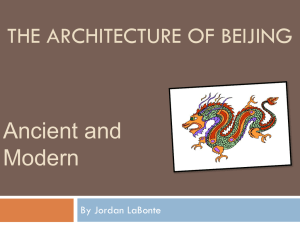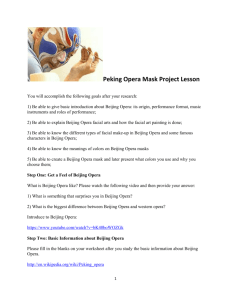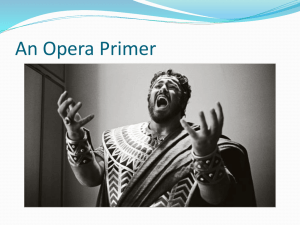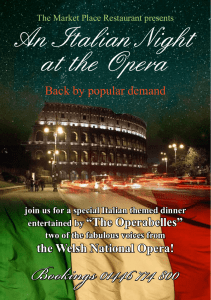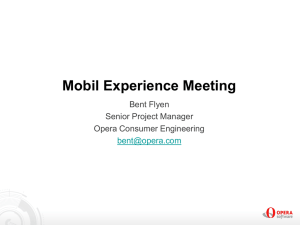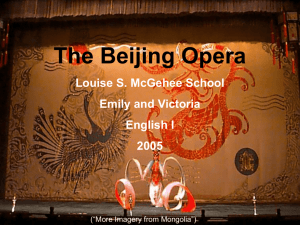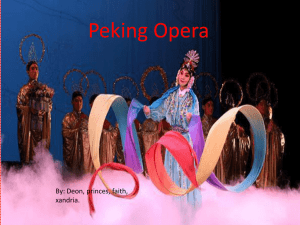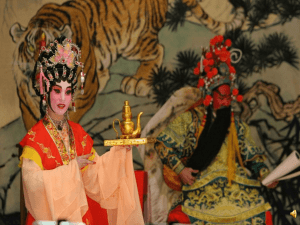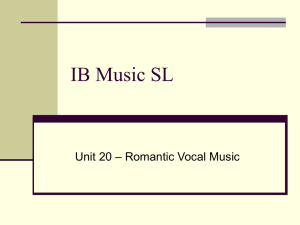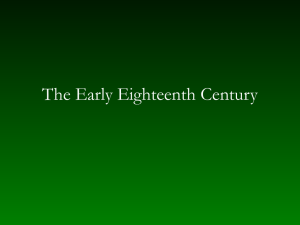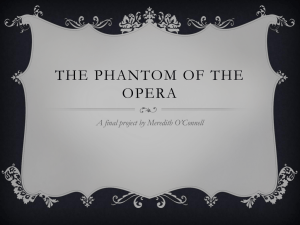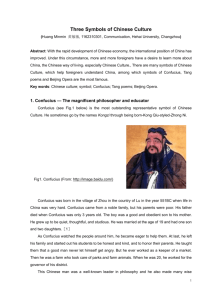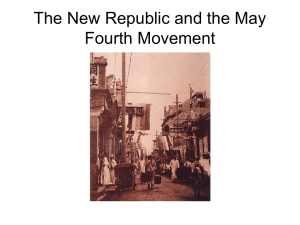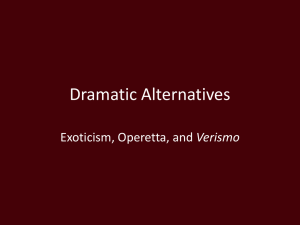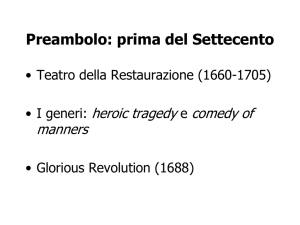Global Perspectives: Musical Drama Worldwide: Chinese Opera
advertisement
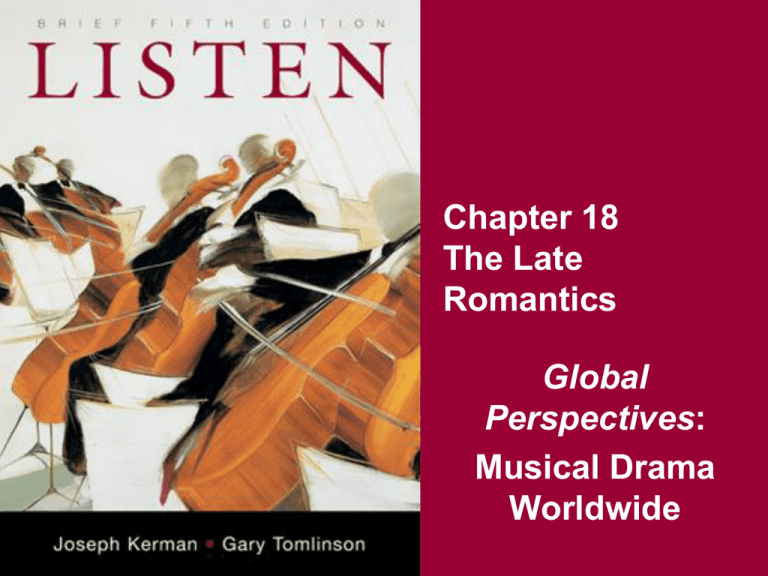
Chapter 18 The Late Romantics Global Perspectives: Musical Drama Worldwide Key Terms Beijing opera Jingju Jing Jinghu Erhu Yueqin Heterophony Chinese Opera (1) Jingju = theater of the capital • We know it as Beijing opera, the most famous variety of Chinese musical drama • One of more than 300 varieties of music drama Beijing opera is a rich amalgam • Song, spoken dialogue, instrumental music, dance, elaborate costume, & martial arts • In its diversity, jingju comes closest to being a truly national tradition Chinese Opera (2) Relatively recent product of a long, complex history • Borrowed many stylistic features from provincial dramas in the late 18th century • Other features developed in the 19th century • Reached its current form in the late 1800s • Striking changes continue in the Communist era Voice Types in Beijing Opera (1) European opera has long linked specific character types to certain voice types • Young lovers are sopranos & tenors • Maids are altos & fathers are basses Similar connections in Beijing opera • Romantic, dreamy young men sing in a high register, often in falsetto • Older, bearded men, trusted advisors, sing in a high baritone range • Warriors use a forced, throaty voice (& must be skilled acrobats) Voice Types in Beijing Opera (2) Jing = face-painted role • May be a warriors, dashing bandits, or gods • More elaborate face paint than other roles • Specific colors & patterns reveal much about their characters • They sing in a loud, hoarse manner Female roles traditionally taken by men • Mature, virtuous women use refined falsetto • Young, lively women use suggestive falsetto • Also an acrobatic female warrior The Orchestra Beijing opera uses a small orchestra • Group of drums, gongs, cymbals • A few wind instruments • Group of bowed & plucked string instruments Percussion group used for battle scenes • Can also introduce scenes, provide sound effects, announce entrances & social status of different characters, & play along with songs String instruments introduce & accompany songs Beijing Opera Songs Uses a wide range of vocal styles • From full-fledged song to heightened, stylized speech to normal speech (for minor roles) Songs are the musical heart of the drama • Marked off from other singing by lyrical style • Rough equivalent of arias in Italian opera Songs not composed for each new drama • Music chosen from a stock collection of tunes • Fitted to the words for each new libretto • Important to choose melodies & percussion patterns that fit the emotional situation The Prince Who Changed into a Cat (1) One of the most famous Beijing operas Story of Empress banished from Beijing • Emperor’s other wives want to be rid of her • Her newborn son is stolen from his cradle & replaced by a cat Our scene takes place years later • A wise, just Prime Minister meets the Empress • Once satisfied she is truly the Empress, he decides to restore her to her rightful position • Our aria takes place as he first meets her The Prince Who Changed into a Cat (2) Introduction begins with percussion • Percussion accompanies Minister’s entrance, signifies his importance • Note accelerando & decelerando Then strings & wooden clapper enter • • • • Three strings play the melody in heterophony Jinghu – high-pitched bowed two-string fiddle Erhu – lower-pitched bowed fiddle Yueqin – moon-shaped plucked lute – plays rapid, strummed repetitions of melody notes The Prince Who Changed into a Cat (3) The Prime Minister begins his aria • Bearded old-man role in high baritone range • Sings same melody as strings in heterophony • Slightly nasal quality is typical of the style Melody often sounds pentatonic • But uses a seven-note scale with much ornamentation & pitch-bending At very end, Minister addresses Empress • Uses the heightened, stylized speech typical for his character type & social standing
